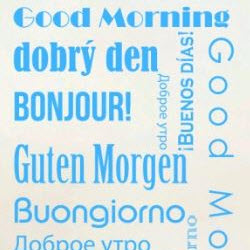The Words You Use Truly Make A Difference
Published
Bonjour, Kalimera, Guten Morgen and Buenos Dias all mean the same thing: “Good morning!”
Yet saying the right words to the right recipient changes how you’re perceived and responded to. You won’t likely say “good morning” in Greek when enjoying a croissant on the Champs Elysee – it’s better used when climbing the winding path to the Acropolis in Athens.
Using the right words when discussing planned giving is no different. If you want a response to your messages about deferred gifts – use the best language!
Recent research points out that using simple social words are 2x more effective than using formal words – think of how you’d talk to your grandmother rather than how you’d write a technical article.
A few minutes today could account for more responses, appointments and planned gifts in the future. Carpe diem!
Recent research points out that using simple social words are 2x more effective than using formal words – think of how you’d talk to your grandmother rather than how you’d write a technical article.
As fall approaches, plan a day on your calendar to review your marketing materials and the language you’ve used in the past. You can read about Words That Work: The Phrases That Encourage Planned Giving and Planned Giving Words that Work II so that you know what to adapt with more effective language for the future.For instance saying “make a gift” out-performs in returned response to the words “make a transfer of assets”.
A few minutes today could account for more responses, appointments and planned gifts in the future. Carpe diem!
News
ARCHIVED | Blackbaud Target Analytics® Tips and Tricks
09/21/2016 1:23pm EDT


Leave a Comment